The New Battleground for 2028
As algorithms replace airwaves, the real battle for power is happening online—and both sides know it.
In the 2020 election, Democratic campaigns were forced to reimagine how to connect with voters. The global coronavirus pandemic shut down traditional campaign trails and forced an unprecedented shift to the digital realm. Zoom calls, virtual rallies, and online organizing quickly became the backbone of civic engagement Thanks to Democrats’ pivot and embrace of a strong digital strategy, the election saw record-breaking turnout, especially among young voters, and President Joe Biden claimed victory.
The success wasn’t ignored. The Biden administration formally acknowledged the role of digital creators by establishing positions focused on social media strategy and outreach. Influencers became regular guests at the White House and the Eisenhower Executive Office Building, legitimizing their role in modern political discourse.
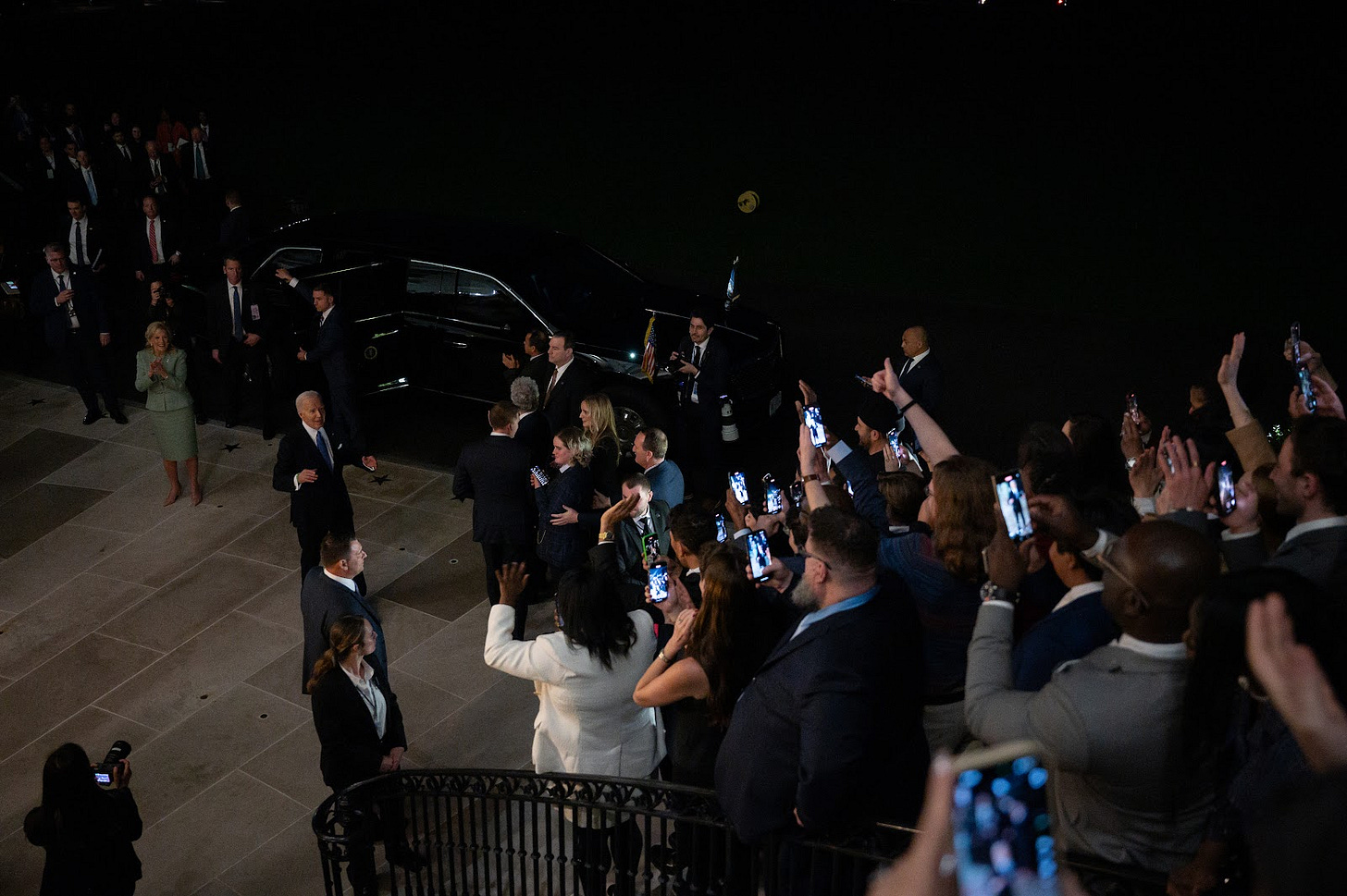
But Democrats aren’t the only ones placing an emphasis on social media’s new role. . Republicans have aggressively embraced content creators with even more financial muscle and ideological alignment. In recent years, influencer outreach has become a central part of the GOP’s digital strategy. At both the 2024 Democratic and Republican National Conventions, influencers were credentialed and given access to backstage events, interviews, and collaboration opportunities with party officials and candidates.
At the 2024 DNC, over 200 content creators were officially credentialed. A select group was even given speaking slots on a dedicated creator stage, surrounded by their peers. The message was clear: Creators are no longer fringe participants in politics—they’re front and center.
Since regaining the White House, the Trump administration has taken the championing of influencers even further, establishing a “new media” seats within the White House press corps. This initiative grants influencers access to official briefings alongside legacy outlets such as ABC and CNN. Many of the questions selected for press secretary Karoline Leavitt come from creators known to align ideologically with the administration, who often ask questions that sound more like partisan prompts than journalistic inquiries.
Though both parties are actively investing in influencer engagement, the Republican Party’s deep financial roots in the creator economy have raised concerns. In one striking example, lifestyle creator Tana Mongeau revealed she was “hypothetically” offered millions to endorse a political party she did not support. When asked if the offer aligned with her values, she simply replied, “No.” Mongeau ultimately endorsed Biden in 2020 and Kamala Harris in 2024.
More troubling still, a recent federal indictment alleged that a media company linked to six prominent conservative influencers had been secretly funded by Russian state media. Prosecutors say the goal was to produce English-language content with the intention of "amplifying U.S. domestic divisions in order to weaken U.S. opposition."
The growing investment in influencers and content creators is a direct response to the media landscape politics now operates within. New media is the leading source of information for the rising generations and it’s poised to remain that way for the foreseeable future.
Pew Research shows that a growing number of Americans get their news from social media rather than traditional outlets. Social media algorithms—especially on platforms like X (formerly Twitter)—have created an ecosystem in which right-wing political content dominates
After Elon Musk, a Trump-endorsing billionaire (soon to be trillionaire) and head of DOGE, purchased the platform, right-wing creators’ prominence skyrocketed. Across platforms, conservative political content edges out its left-leaning counterpart—with the notable exceptions of TikTok and a nearly even split on YouTube. In response, progressive donors, nonprofit leaders, and digital strategists have begun organizing to build their own infrastructure for civic-minded creators. Their goal isn’t to buy talking points or endorsements, but to fund the logistics and operations that help creators produce consistent, high-quality content.
One of the clearest examples of this is CHORUS, a new non-profit organization focused on “building the infrastructure necessary to retake power for everyday Americans and marginalized communities.” In early 2025, CHORUS was one of several organizations that convened over 150 content creators from across the country in Washington, D.C. for the three-day, fully funded conference Trending Up.
The event was part crash course in content creation, part civics education, and part policy summit. Creators learned the mechanics of government and met with elected officials who emphasized the essential role the creators play in political communication and voter engagement.
Unlike most political events, the tone was refreshingly unscripted. Democratic leaders spoke not in soundbites but in direct, unfiltered terms about the stakes of this moment:
Rep. Maxwell Frost highlighted the power of storytelling in both activism and governance, stressing that authenticity remains one of the most effective tools in political persuasion.
Sen. Elizabeth Warren defended the Consumer Financial Protection Bureau and the Department of Education as vital institutions that protect working families.
Former Transportation Secretary Pete Buttigieg encouraged creators to step outside their political echo chambers and engage audiences in more adversarial or unfamiliar spaces.
Sen. Raphael Warnock emphasized that lasting change has always come from organizing, not just messaging.
House Democratic Leader Hakeem Jeffries offered a sober assessment: we are living through a constitutional inflection point, and everyone—regardless of title or platform—has a role to play.
In addition to keynote speeches, many elected officials participated in interviews with creators, both privately and on Capitol Hill. These moments were captured and shared across platforms, placing once-distant and inaccessible institutions into the feeds of millions.
The courting of influencers is no longer happening behind closed doors. Warnock and Buttigieg posted publicly about their attendance at Trending Up, signaling that Democrats see this work not just as a side project but as central to their long-term strategy.
It’s increasingly clear that both major parties recognize the influence content creators wield and are actively competing to win them over ahead of the 2026 and 2028 elections. But one looming question remains: Can Republicans and the Trump administration, who control all three branches of government, continue to weaponize social media algorithms to blame the country’s problems on Democrats?
Since returning to power, Trump’s approval ratings have faltered—dragged down by reckless economic decisions and sweeping attacks on fundamental rights. His social media posts still garner massive engagement, but the long-term consequences of his braggadocio are uncertain. Will the constant amplification of his administration’s actions ultimately hurt or help his movement?
One thing is certain: The influencer primary is already underway. This time, it’s not just about who gets the most views—it’s about who shapes the narrative that defines the future.
is a Texas Democratic Strategist and Gen Z firebrand. She is an abortion rights activist, democracy organizer, and political influencer. With over 1 million followers across TikTok, Twitter, and Instagram, her content has accumulated over 1 billion views, changing the political landscape and putting youth voices front and center in the fight for our future.





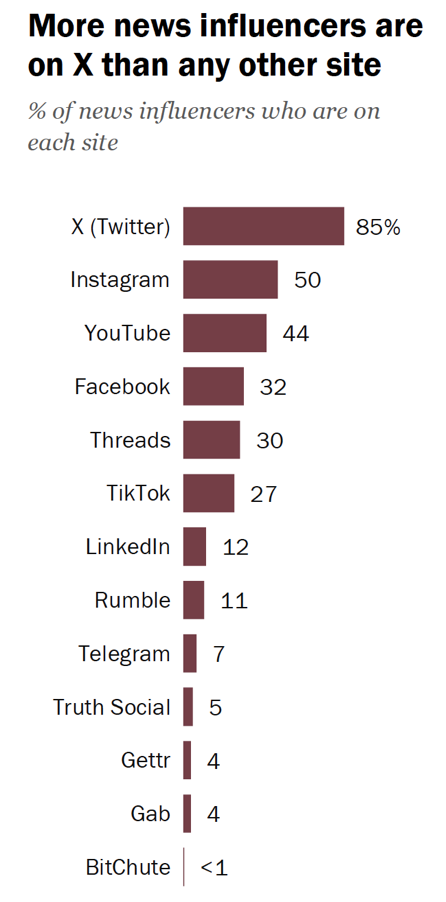
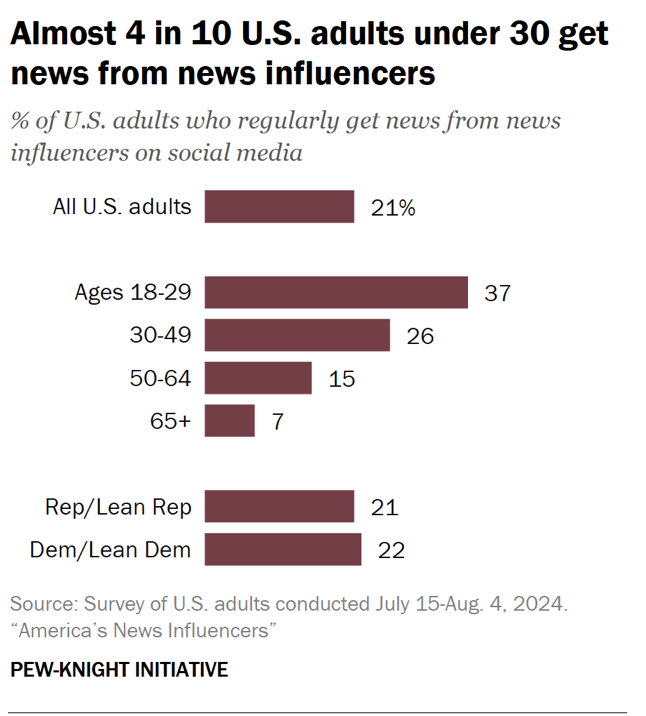
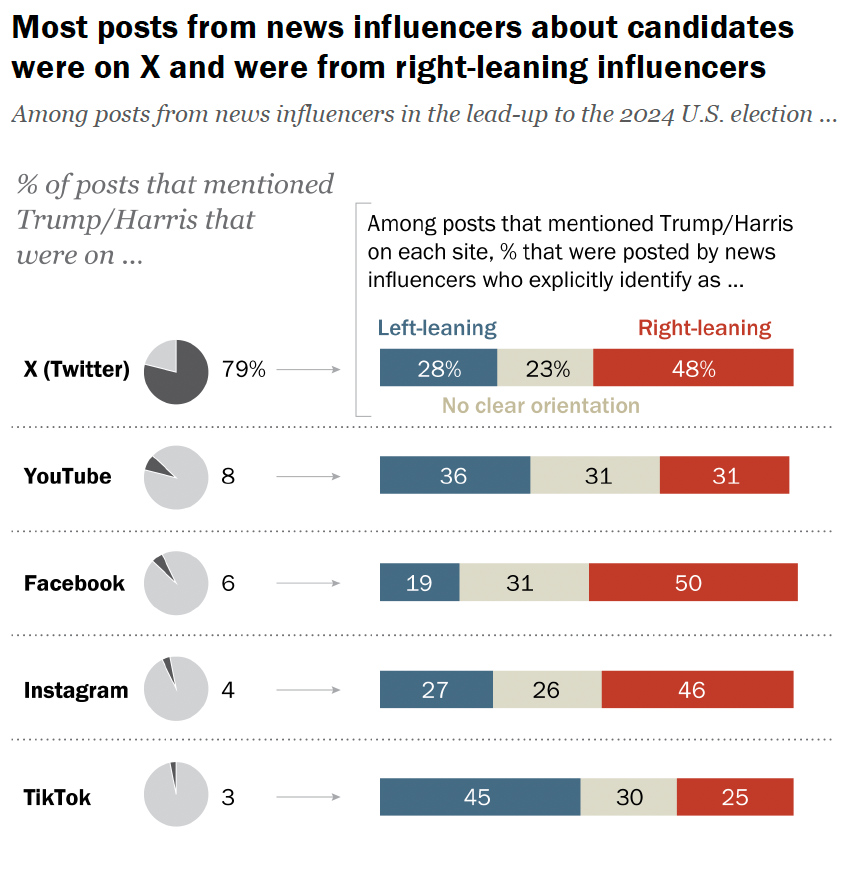
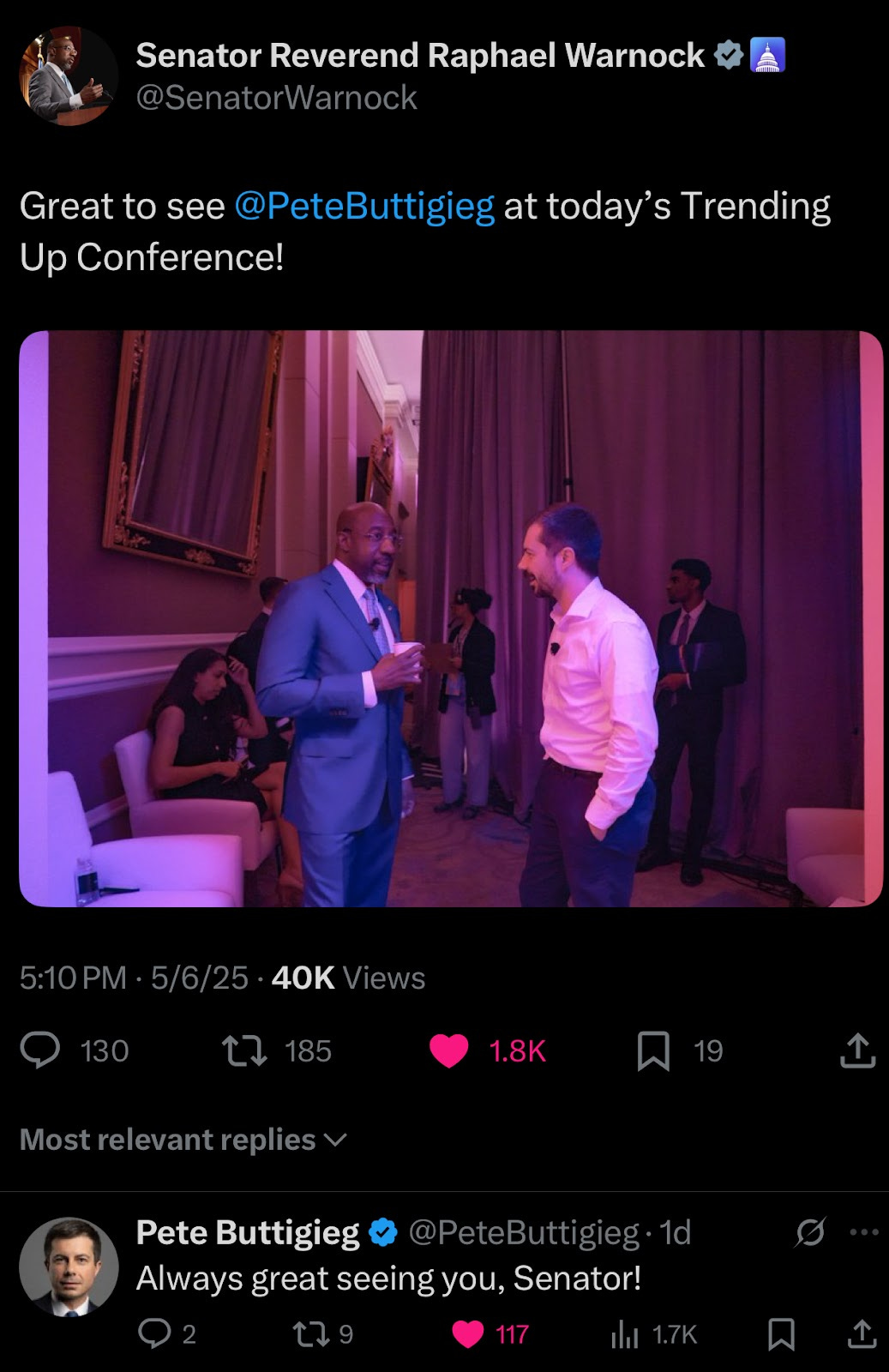

At my age (80) I'm not really into influencers of any sort, but I know they actually do influence the thinking of many people, so I'm pleased to see the Democratic Party embracing them. Whatever it takes, I'm for it.
Our politics have become a 24/7 event due to those wishing to tear-us down being paid around the clock and around the world to create havoc and detesting of the established institutions of society.
That idea of 24/7 engagement is also a huge turn-off. Most are just trying to get a days work done and food on the table, kids to school, or simply - have a life.
However, we must meet the moment, or we will be destroyed by the power and money hungry.